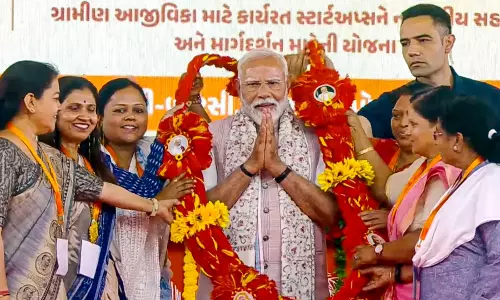Aadhaar must to register deaths
The new regulation will not be applicable to the states of Jammu and Kashmir, Assam and Meghalaya.;

New Delhi: In a major administrative move, the Centre has made furnishing the Aadhaar number mandatory to register all deaths in the country from October 1 this year. The home ministry has said anyone applying for a death certificate from October 1 would have to furnish either the Aadhaar number or the Enrolment ID (EID) number of the deceased person, in addition to all other details sought in the application form.
However, in case the applicant is not aware of either the Aadhaar or EID number of the deceased, the concerned person would have to certify that the deceased person did not have an Aaadhar or EID number “to the best of his or her knowledge”.
MHA officials clarified in case the information given by the applicant in the certificate was found to be incorrect, it would be treated as an offence under the provisions of the Aadhaar Act 2016 and the Registration of Births and Deaths Act 1969.
The applicant too would have to provide his/her Aadhaar number along with that of the spouse or parents of the deceased. The new regulation will not be applicable to the states of Jammu and Kashmir, Assam and Meghalaya. A separate date would be announced soon for the notification and rollout of the scheme in these three states.
MHA officials said the move would help prevent identity fraud. A notification issued in this regard by the ministry clearly states the Aadhaar number would help clearly establish the identity of the deceased person for the purpose of registration of death, which in turn will help the applicant get a death certificate.
The office of the registrar-general, which works under the overall administrative control of the home ministry, claimed that providing Aadhaar details would help to a large extent to ensure accuracy of the details furnished either by “relatives or dependants or acquaintances of the deceased person”. The registrar-general’s office also said the new scheme would help prevent identity fraud as it would ensure recording the correct identity of the deceased person. It would also end the existing practice of applicants being required to produce multiple documents to establish the identity of the deceased person. The Centre asked all states and Union territories to ensure compliance by the registration authorities and to inform the registrar-general with a confirmation either on or before September 1.


